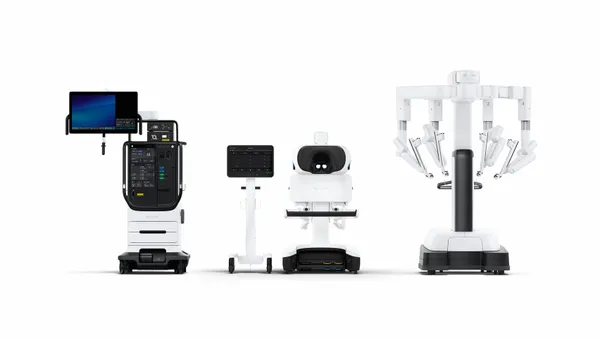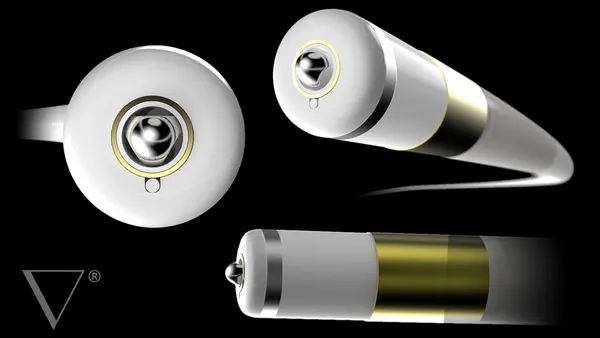Dive Brief:
- Senseonics Holdings said its Eversense continuous glucose monitoring (CGM) system is now available at trained clinics across the U.S. and physicians have begun sensor placements with patients. The product received FDA approval in late June.
- The device is the first CGM system to offer an implantable sensor that can be worn for up to three months.
- The company also announced that its first commercial payer, Horizon Blue Cross Blue Shield of New Jersey and Horizon Healthcare of New Jersey, has added coverage of the Eversense system to its medical policy. Horizon has four million members.
Dive Insight:
Continuous glucose monitoring devices reduce or eliminate the need for routine finger stick testing, depending on the device. Patients benefit from knowing where their blood glucose levels are trending during the day and night.
The glucose sensors of other systems on the market last 7 to 14 days, compared with 90 days for Senseonics’ Eversense device. In Europe, Senseonics’ Eversense CGM XL System is approved for up to 180 days of continuous use.
The Eversense system will compete with Abbott’s FreeStyle Libre continuous glucose monitor, which last month received FDA approval for a 14-day sensor, and Dexcom’s G6 product, with a sensor that lasts 10 days before needing replacement.
Senseonics’ sensor is implanted below the skin’s surface in an outpatient procedure. This is different than Abbott's and Dexcom's sensors, which patients insert themselves.
The Senseonics transmitter, worn over the sensor, sends the patient’s glucose data to a mobile application via Bluetooth for use in making medication and lifestyle decisions to manage diabetes. The data is accessed on the patient’s Apple or Android device, then stored in a HIPAA-compliant cloud. The rechargeable transmitter can be removed and re-adhered without discarding the sensor and provides vibratory alerts signaling high and low glucose levels.
Medtronic, also a major player in the market for diabetes devices, makes a self-adjusting insulin pump, called the MiniMed 670G system, that delivers personalized amounts of basal insulin every 5 minutes based on real-time sensor glucose values. The company in March received FDA approval for its standalone Guardian Connect continuous glucose monitoring system for people on insulin injections.












